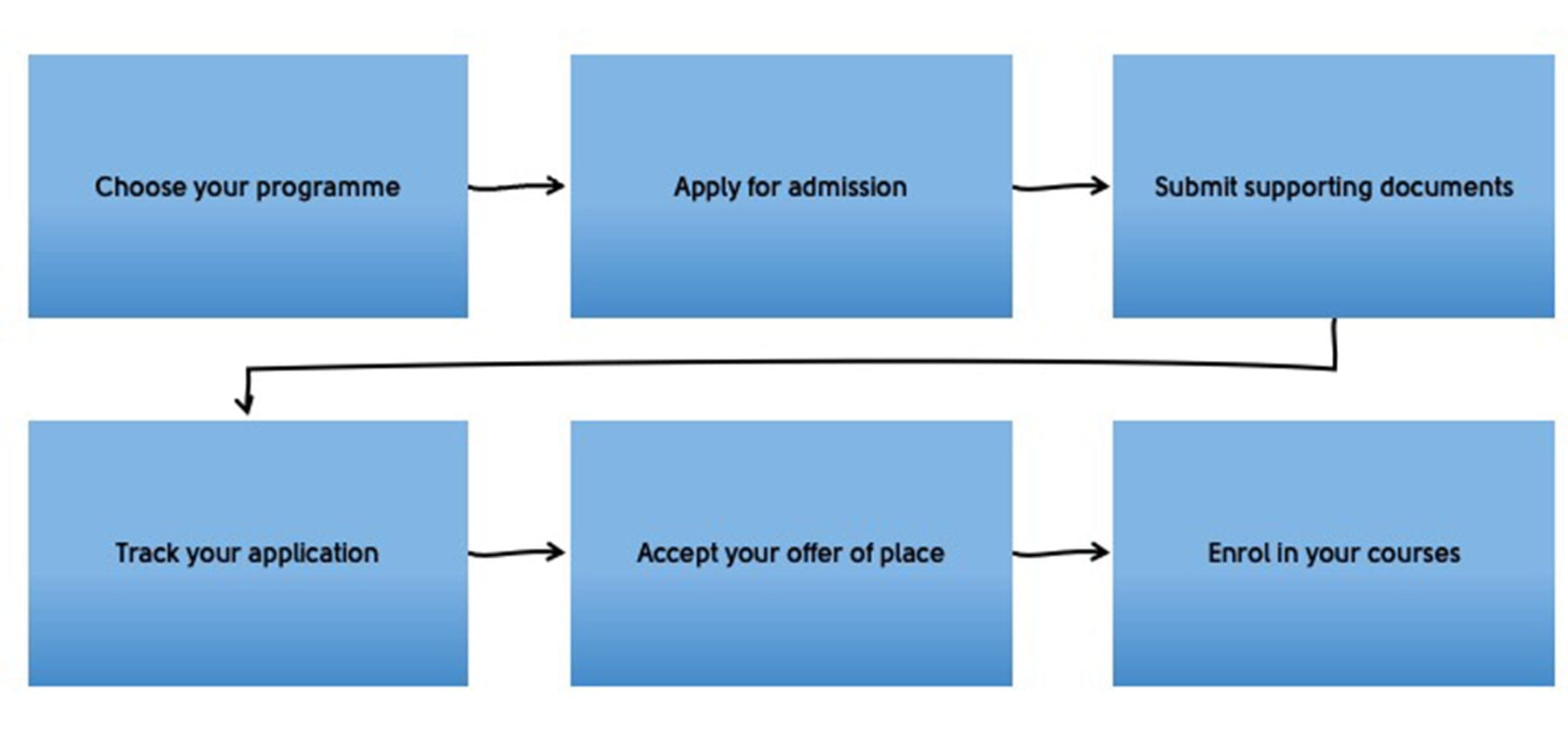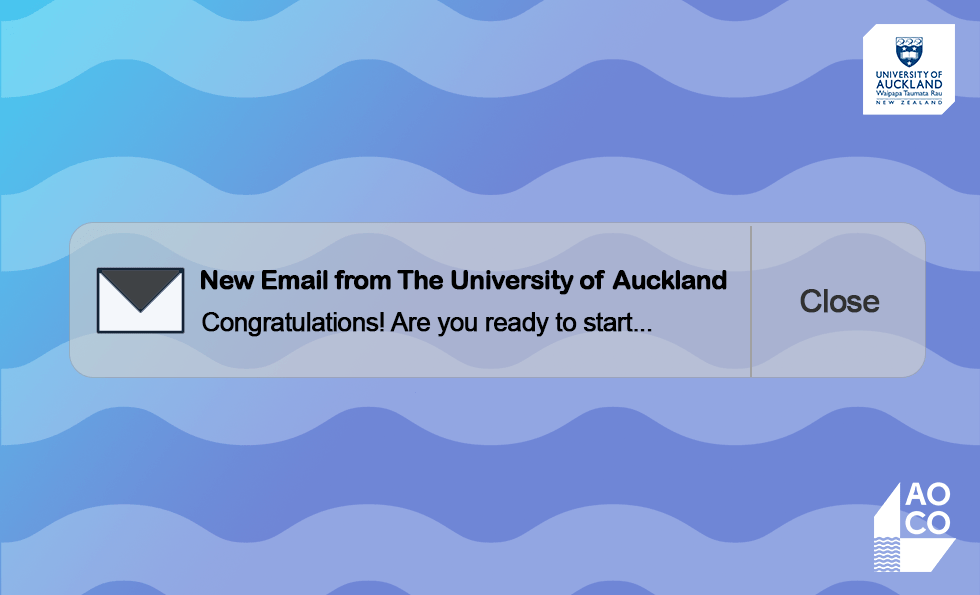Curious as to what the Auckland Online short courses are like?
Whether or not you’ve been been a student at Waipapa Taumata Rau | The University of Auckland, you might not be familiar with the enrolment or learning process that Auckland Online adopted in 2019. This article will walk you through what you and your fellow coursemates can expect.
1. Application & Enrolment
As credit-bearing courses offered by Waipapa Taumata Rau | The University of Auckland, all Auckland Online courses require students to go through application and enrolment.

If you haven’t studied with us before, our admissions process will ask you for a few things, so it’s best to have these handy!
- Academic history: List of all qualifications you have completed or are currently completing.
- Certified personal identification
- Academic transcripts and/or completion evidence from prior tertiary study (if applicable)
Your application will be processed by the University’s dedicated Application & Admissions team. They will get in touch with you if more information is required, or to offer you a place in your selected course.
With an offer of place, you do need to accept or decline the offer to be admitted. Then congratulations, the Auckland Online team can now enrol you into your course
2. Online learning platform
For the best learning experience, we use Canvas as the platform to provide your educational content.
When was the last time you read a full page of information, without losing concentration? We all have a recent example, which is why our courses are full of multimedia content and tools to improve your learning and understanding.
We also ensure that all content is as accessible as possible. Closed captions are available on all video content and modules are screen-reader friendly for your ease of use.

3. Learning content and material
If you were wondering about the quality of the content, you can put your concerns to rest. All modules of our courses and programmes are compiled and curated by university lecturers who are well-recognised in their fields.
Some examples include
- Professor Ngaire Kerse, member of NZ Order of Merit, who contributes to Medicines Optimisation in Older People;
- Dr Nalin Arachchilage, who led a project that improved OWASP Enterprise Security API and its Javadoc for the ESAPI Encoder interface for the 2.2.1.0 release. He is the Course Director for Cyber Forensics and Security; and
- Professor Katie Fitzpatrick, multi-award winning scholar, who is the Course Director for Mental Health & Wellbeing in Schools.

4. Networking and discussions
In addition to the content, discussion boards are included in the Canvas modules for you to engage your fellow coursemates and teachers in discussion.
No awkward conversations here: prompts relevant to your coursework are included so meaningful insight and learning can be shared.
While the majority of your learning will be asynchronous and in your own time, some courses have synchronous online meetings in the evenings on weekdays. This gives you a real-time opportunity to meet your coursemates and of course, ask questions about the course material. If you can’t make the session, they will be recorded so you can access the discussion on-demand.
All in all, the Auckland Online short courses are designed to maximise your learning experience. If you have been holding off applying to a short course, check out the intake dates for courses to start your application process.
Start Your Online Learning Journey
We collect your contact details so we can send you information about studying at the University of Auckland. Please read our Privacy Policy for more information.
What Scholarships Am I Eligible For With 100% Online Study?
If you’re feeling stuck in your job or you’re simply looking for a new challenge, a career change can shake things up and find your passion. But before you make the leap, here are a few things you need to think about!
How to Get Employer Funding for 100% Online Postgraduate Programmes & Courses
If you’re feeling stuck in your job or you’re simply looking for a new challenge, a career change can shake things up and find your passion. But before you make the leap, here are a few things you need to think about! We explore the reasons why employers should sponsor their employees’ postgraduate study and how employees can secure funding from their employers.
What Types of Student Loans Am I Eligible For With 100% Online Study?
Embarking on postgraduate study can be a big decision, with personal finances to take into consideration. You could be eligible for a student loan via Studylink if you enrol in an Auckland Online programmes.





